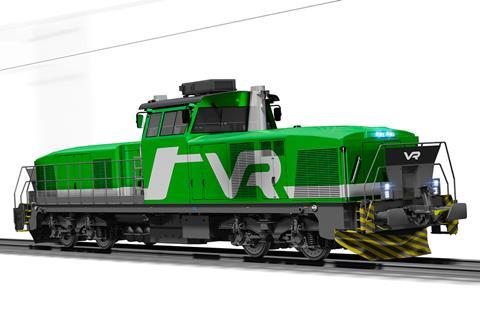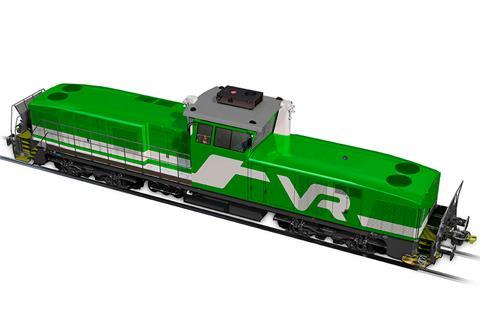
FINLAND: VR Group has formally signed a contract for preferred bidder Stadler to supply 60 diesel-electric locomotives, the manufacturer announced on April 18.
The contract is worth approximately €220m. There are options for up to 100 additional locomotives, as well as for Stadler to undertake maintenance. The first five locomotives are expected to enter service in 2022, with the rest delivered by the end of 2025.
Stadler said the ‘top of the line’ locomotives would ‘clearly outperform’ VR’s existing locomotives, with lower emissions, better energy efficiency, and improved safety and reliability.

The 18 m long, 88 tonne centre-cab locomotives with a maximum speed of 120 km/h are intended for shunting and for hauling freight and passenger trains either singly or with up to three locos in multiple.
They are to have two 0·95 MW engines complying with EU Stage V emission regulations. The AC traction system will have one inverter per axle, with a maximum starting tractive effort of 346 kN to give the capability of hauling a 2 000 tonne train.
They will be fitted with radio controls, the latest generation of vehicle control system including remote diagnosis features, ETCS Baseline 3 and the local STM ATP safety system.
Stadler said it would draw on its proven experience in supplying vehicles able to operate at temperatures as low as -40ºC in Finland’s demanding climate.
The formal award of the contract was ‘a major milestone for Stadler’, said Iñigo Parra, CEO of Stadler Valencia, who signed the contract with VR Group CEO Rolf Jansson. ‘It strengthens our position in the shunting segment, a market niche, which is expected to grow considerably in Europe in the forthcoming years. This versatile vehicle will be designed principally for yard operations as well as for hauling freight trains on main lines, in an efficient and reliable way under extreme temperature and weather conditions.’

















